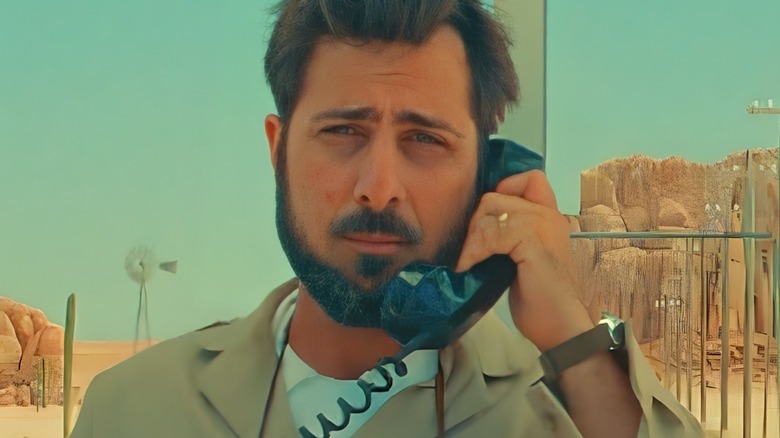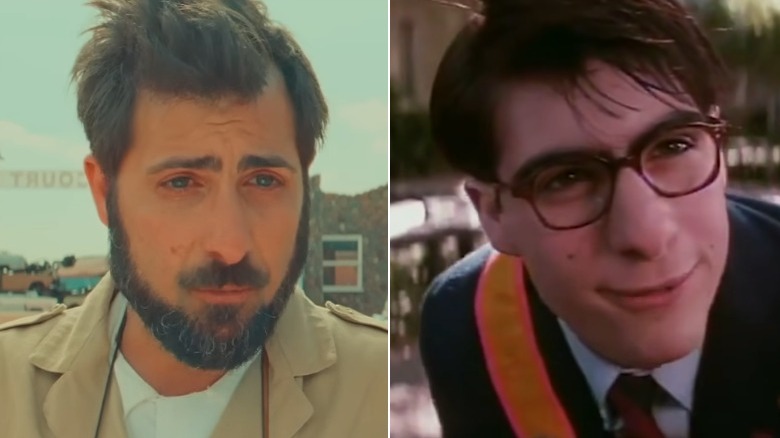Is Asteroid City Secretly A Sequel To An Early Wes Anderson Film?
There's at least one Wes Anderson film you should watch (or rewatch) before you embark on your journey to "Asteroid City."
Though the celebrated director's latest film is a standalone piece like the rest of his filmography, it oddly acts as a spiritual sequel to one of his earliest works — the quirky coming-of-age comedy "Rushmore." Widely credited with launching Anderson's career into the stratosphere, "Rushmore" focuses on Max Fischer, an artistically passionate but egocentric high schooler, played by "Asteroid City" star Jason Schwartzman. In the movie, released in 1998, Max falls into a bizarre, unrequited love triangle with his teacher Rosemary (Olivia Williams) and his wealthy adult best friend Herman (Bill Murray).
At first glance, it may not seem like "Rushmore" shares much in common with the story presented in "Asteroid City," and, admittedly, we'd be betraying an affinity for tin foil hats if we stated outright that the two films were without question directly and intentionally connected to one another. All that being said, however, there's a compelling case to be made that the two films are in conversation with each other, and may benefit from back-to-back viewing, especially when you consider the similarities between the two leads — both of whom are suspiciously played by Schwartzman.
Are Rushmore's Max Fischer and Asteroid City's Jones Hall the same character?
Throughout most of "Asteroid City," Jason Schwartzman portrays the character of Augie Steenbeck, a prominent figure in a televised production of a play. However, offstage, Schwartzman takes on the role of Jones Hall, an actor obsessed with finding absolute meaning in his work. Right away, the name "Jones Hall" could be a clear reference to the Jones Hall performing arts center in Anderson's hometown of Houston, Texas — the same city in which "Rushmore" is set.
Similar to Jones Hall in "Asteroid City," Max from "Rushmore" is a self-assured actor who finds his strongest connection to the world through art. When his stubborn affection for his teacher Rosemary emotionally wounds both her and her true love Herman, Max attempts to right his wrongs and repair their relationship by inviting them to the premiere of his new play. Thus, if "Rushmore" is the story of someone making absolute sense of the world on stage, "Asteroid City" demonstrates his evolution to understanding that uncertainty can still be present within the confines of performance, showing growth in character and a more nuanced understanding of life.
Whether viewed as a thematic duo or a direct duology (perhaps Max Fischer found Jones Hall to be a more agreeable stage name), "Asteroid City" and "Rushmore" work perfectly with one another to paint a dynamic, thought-provoking portrait of how Anderson views the relationship between art and artist. And seeing that the director confirmed "Rushmore" to be at least partly autobiographical, it wouldn't be entirely out of line to imagine each film in Anderson's meta-filmography as yet another masterpiece from the mind of Max.

